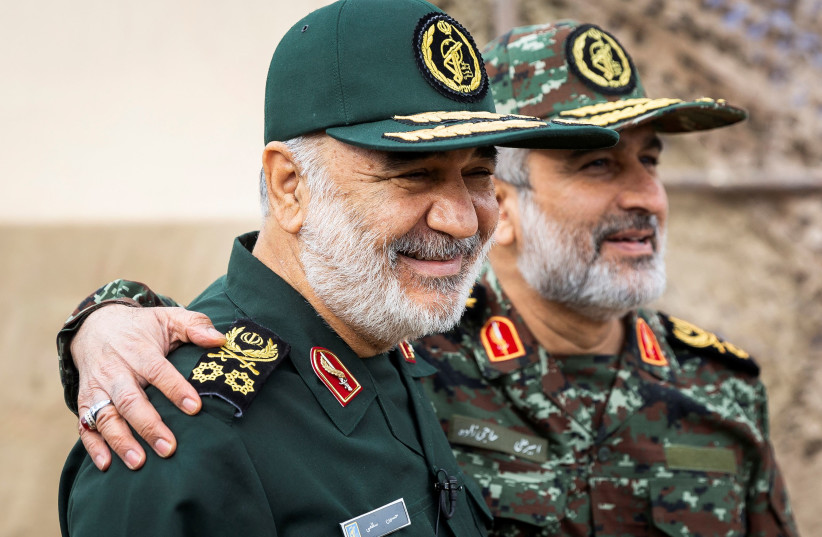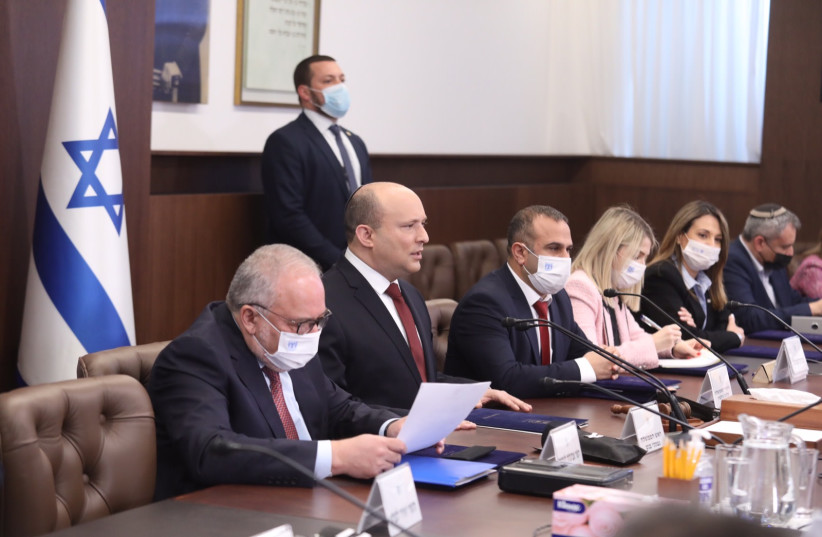The US is considering removing the Islamic Revolutionary Guard Corps’ designation as a Foreign Terrorist Organization for the nuclear deal.

Removing the Islamic Revolutionary Guard Corps’ designation as a Foreign Terrorist Organization is too high a price to pay for a nuclear deal with Iran, Prime Minister Naftali Bennett warned at the start of Sunday’s cabinet meeting.
“Unfortunately, there is determination to sign a nuclear agreement with Iran at almost any price, including saying that the world’s largest terrorist organization is not a terrorist organization,” Bennett said. “That is too high a price.”
Bennett expressed concern about Iran’s “audacious” demand the remove the IRGC from the FTO list as a side deal to the revival of the 2015 Iran nuclear deal. The US has sought a public commitment from Iran to de-escalate in the region and not to attack Americans, something Bennett and Foreign Minister Yair Lapid said they “find hard to believe” in a joint statement on Friday.
“The IRGC is the largest, most murderous terrorist organization in the word, and unlike ISIS or other organizations, they have a state behind them,” Bennett said. “This is not just an Israeli problem; other countries, US allies in the region, are dealing with this organization day after day, hour after hour.”
Bennett pointed out that IRGC and its proxies have shot missiles and UAVs into countries throughout the region.

“Even now, the IRGC is trying to murder Israelis and Americans around the world,” he added.
If the US decides to de-list the IRGC, Israel will continue to treat it like a terrorist organization, the prime minister said.
“As usual, what determines our future is our actions, not words,” he said.
On Friday, Bennett and Lapid said they “believe that the United States will not abandon its closest allies in exchange for empty promises from terrorists.”
The US assured Israel in recent weeks that it “can find other ways to keep the IRGC in check,” an Israeli diplomatic source said, but they did not specify how. Israel is also concerned about the move sending a “terrible message.”
Bennett and Lapid issued a joint statement in order to make clear that there are not political differences between them, the source said.
The removal of the IRGC’s terrorist designation has the potential to boost Iran’s economy, in addition to lifting nuclear-related sanctions as per the 2015 Joint Comprehensive Plan of Action.
The IRGC has played a huge role in Iran’s economy for decades, with its hands in a range of industries like energy, water, transportation, communications, infrastructure and more.
With the IRGC considered a terrorist group since 2019, the US could initiate legal proceedings against companies that work with its subsidiaries – though it has never done so. Lifting the IRGC’s terrorist designation would enable foreign companies to do business with subsidiaries of the group.
The US and Iran have been indirectly negotiating for the past 11 months to return to compliance with the 2015 nuclear deal, which restricted Tehran’s uranium enrichment to 3.67% and cut almost all of its stockpile of enriched uranium in exchange for gradually lifting sanctions.
World powers and Iran have said in recent weeks that they are close to completing the deal. The IRGC designation is one of the final matters to be negotiated, along with Russia seeking an exception from Western sanctions related to the Ukraine war in order to be able to carry out civilian nuclear activities with Iran as stipulated by the JCPOA.
Israel opposed the original deal and the return to it, pointing out that most of its limitations on Iran’s nuclear activities expire at the end of 2025, and that the agreement does not restrict Iran’s malign actions in the region or its ballistic missile program, while lifting san
Content retrieved from: https://www.jpost.com/breaking-news/article-701794.